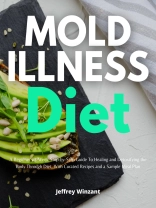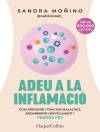Buildings in time can get water-damaged, most especially in parts of the world where rain is common and the humidity is notably high. As a result of such damage, microorganisms can live in these affected areas and eventually cause health problems if not managed promptly.
These microorganisms may include but are not limited to, bacteria and fungi, with the latter being able to produce mycotoxins in the systems of those who got exposed to them. Fungi, like molds, can produce such toxins and lead to a wide array of chronic symptoms, ranging from a simple headache down to severe autoimmune conditions.
Although mycotoxins most commonly enter the body by ingesting mold-contaminated foods, they may also occur through the skin or be dispersed in the air to be inhaled by unsuspecting victims. These toxins can end up causing an illness in one’s body. This condition is known as Chronic Inflammatory Response Syndrome (CIRS) or more commonly referred to as mold illness.
Molds rely on moisture to grow and reproduce through minuscule cells called mold spores. These microscopic spores are so light in weight that they can be carried by air. This means that we are exposed to them all the time but are considered harmless in small amounts. The real dilemmas start when they attach themselves to moist surfaces like ceilings, walls, and floors to grow in significant amounts enough to be health hazardous.
There are plenty of mold types and until now, there is still no particular study that can tell exactly how many species there are. What we know for sure is that not all species of mold are harmful, but some of them may cause serious damage to our health.
The effects of mold exposure in the body are often mistaken for something else, but luckily, there has been a growing awareness spreading in public and medical communities. Effective treatments for mold illness have been made available nowadays, but what most are not aware of is that nutrition plays a key role in managing these conditions.
If you want to know how nutrition can help treat mold illness, continue reading.
In this guide, you will discover the following:
- What mold illness and its symptoms
- Differences between mold illness and allergies
- How to test for mold illness
- The types of food to eat and avoid
- A 3-week step-by-step guide to follow a mold illness diet
- Sample recipes that you can follow for this diet
Tabella dei contenuti
Introduction
What You Need to Know About Mold Illness
The Mold Illness Diet Guide
Sample Recipes
Conclusion
References and Helpful Links












